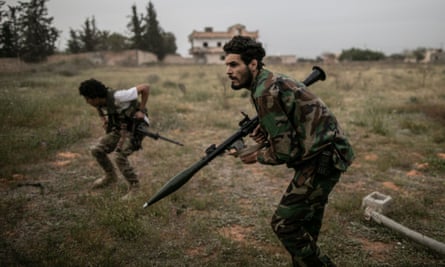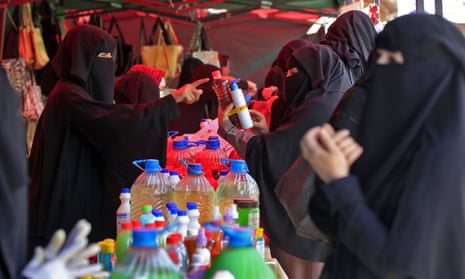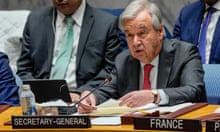Eleven countries locked in long-term conflicts have responded to a UN call for a worldwide ceasefire, the UN secretary general, António Guterres, said as he promised to pursue the drive in the weeks ahead.
The United Nations is deeply concerned that in countries with already fragile health systems, the backdrop of war will make it near impossible to contain a coronavirus outbreak.
Speaking in New York, Guterres said his call, made on 23 March, had been endorsed by “an ever-growing number of member states, some 70 so far, regional partners, non-state actors, civil society networks and organisations, and all UN ’messengers of peace’”.
An online petition organised by Avaz gained more than 1m signatures. Guterres said “to silence the guns, we must raise the voices for peace”.
The UN insists its call is not just a desperate effort to show its relevance at a time when the security council is so divided.
Guterres admitted that despite nominal support in some countries for his global ceasefire, “there was still a distance between declarations and deeds in many countries”. He said he had asked his special envoys across the globe to redouble their efforts to persuade combatants to lower their guns to allow humanitarian workers to combat the coronavirus.
“The Covid-19 storm is now coming to all these theatres of conflict,” he warned. “The virus has shown how swiftly it can move across borders, devastate countries and upend lives. The worst is yet to come.
“There are enormous difficulties to implementation as conflicts have festered for years, distrust is deep, with many spoilers and many suspicions. We know that any initial gains are fragile and easily reversible.”
He claimed in countries as far apart as Yemen, Libya, Cameroon, Colombia, Syria and Ukraine, actors had agreed to heed the ceasefire call. In Syria, for instance, the numbers of deaths in March – 103 by one estimate – was the lowest for the whole of the nine-year civil war, and the UN envoy expressed hope that a ceasefire negotiated by Turkey and Russia was holding.
In Yemen, the UN special envoy, Martin Griffiths, is trying to bring the sides together despite a rise in violence to discuss how they could work together if coronavirus hit the country. Saudi Arabia has said more openly than before that it is holding direct talks with the Houthis on a possible political settlement.
In Libya, where the fighting has escalated since the ceasefire call, and the first death blamed on the coronavirus has occurred, Guterres urged both sides to join forces to address the Covid-19 threat, ensure unhindered access to humanitarian aid and realise the ceasefire they have long been discussing under the auspices of the United Nations.

The EU has launched an air and sea effort this week to enforce a pre-existing UN arms embargo, but the fighting between the forces of the UN-recognised government in Tripoli and those dominant in the east has got worse.
Guterres pointed to the example of Afghanistan, saying that although fighting had intensified, “on 26 March it was announced that a 21-member team, which includes five women, was formed for direct negotiations with the Taliban. The government and the Taliban have also established technical contacts for an initial prisoner release programme.”
Leaders in Ukraine, the Philippines and Sudan have also backed the UN call.
At the UN itself, a Russian resolution to back a global ceasefire and an end to trade wars and sanctions was rejected by a western alliance in favour of a more general resolution calling for ceasefires.
The Russian declaration was co-sponsored by 28 UN member states, Russia’s UN mission said. The general assembly instead passed a different resolution calling for “international cooperation” and “multilateralism” to combat the coronavirus.









